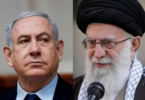Dr. Amal Mudallali
Arab and Muslim American voters, and the coalition they built in the Michigan primary elections, this week sent a warning message to President Joe Biden and his campaign. They made it clear that he needs to change course on the Israeli-Palestinian conflict, support a ceasefire, and halt military aid to Israel or he will risk losing their votes in the November presidential election in a key state that could be decisive.
The “Listen to Michigan” campaign registered a “huge victory,” celebrating Arab American leaders said, with the results of the state’s Democratic primary showing that more than 100,000 voters cast an “uncommitted” vote instead of voting for Biden, the party’s nominee.
This was a historic win for the Arab American and Muslim communities and their allies in Michigan. It was the first time that Arab Americans had flexed their voting muscle and showed that their voice should be heard and their vote counted in presidential elections.
The campaign, which was expecting to get 10,000 votes but got 10 times more than that, was well organized and made an “unprecedented impact, contacting 1,167,850 voters to encourage them to vote uncommitted,” and made “517,383 phone calls and sent 650,467 text messages,” as Emgage Action Michigan, a Muslim advocacy group, wrote in an email.
Leaders in the Democratic Party of Michigan like Rep. Rashida Tlaib, a Palestinian American who has family in the West Bank, led the effort. Tlaib’s sister, Layla Elabed, was the head of the campaign. The coalition included other ethnic groups and activists, especially young people who are angry at the White House’s policy toward the war. This was reflected in the high number of “uncommitted” votes in university towns in Michigan.
The Arab American community has been vocal since the beginning of the war on Gaza in calling for a ceasefire and a halt to US military aid to Israel, while warning the Democratic Party of the consequences if there is no change in policy. But the community feels that their calls have fallen on deaf ears. The president has not visited Michigan since the war started and has not met with the community there, leading to feelings of hurt and accusations of double standards.
Some activists complain that the community feels that its pain has not been recognized since many of them have lost family members in the Israeli attacks on Gaza. They cited the White House’s January statement on “100 days of captivity for hostages in Gaza” as an example because, while it talked about the pain of the families of the hostages, it did not mention the loss of thousands of Palestinian lives in Gaza.
The White House reached out to the community in Michigan, especially after the leaders of the community refused to meet Biden’s reelection campaign officials. Deputy National Security Adviser Jon Finer traveled to the state and met with the community leaders. In their meeting, Finer expressed regret and acknowledged that “missteps” were made in the administration’s handling of policy toward the war in Gaza. But the war continues and the community has become more vocal in its calls for a ceasefire.
The results of the primary election showed that one in eight Democrats voted “uncommitted” in the Michigan primary, according to The New York Times, which described it as a “protest of the Biden administration’s policies toward Israel and the war in Gaza.” The newspaper noted that, in “some of the predominantly Arab American precincts in Dearborn,” which is dubbed by some the Arab capital of Michigan, “around three in four Democrats cast a protest vote for uncommitted.”
Michigan is a purple state, or a swing state. Former President Donald Trump won it by fewer than 11,000 votes in 2016, while Biden won it by just over 150,000 in 2020. This makes the Arab American and Muslim vote a potentially decisive one in November, should the community’s voters decide not to vote for Biden or to just sit at home and not vote at all, giving the advantage to the likely Republican nominee, Trump.
News reports indicated that 13.3 percent of Michigan Democrats cast an “uncommitted” vote, with some precincts registering 15 percent or more. This means the campaigners can send two delegates to the Democratic National Convention in Chicago this year, and declare they are not committed to the Democratic nominee.
A Listen to Michigan official said that campaigners “plan to hold the Democratic nominee accountable to our community’s anti-war agenda at the Democratic National Convention in Chicago. See you there.” Other activists said they wanted to replicate the campaign in other states. But this does not enjoy the full support of the leaders of the Arab American community, especially the seasoned ones, who point to obstacles to repeating the Michigan experience elsewhere.
First, they say, not all states have the option of “uncommitted” on the ballots. Second, the effort succeeded in Michigan because of the sizable Arab American community there. And, third, it was planned and organized well ahead of time, with Democratic Party officials’ support. That cannot be replicated in other states without organization, they contend, while warning that a failure could hurt the overall effort.
The White House first issued a statement on behalf of the president, as the results came in from Michigan, without mentioning the “uncommitted” votes or the reasoning behind them. But CNN later reported a statement from a senior campaign adviser who said: “President Biden shares the goal of many of the folks who voted uncommitted, which is an end to the violence and a just and lasting peace. That is what he is working for.”
Even before the vote, the administration tried to send signals that it was listening to the criticism. Secretary of State Antony Blinken made a statement expressing disappointment at Israel’s announcement of plans for the building of new settlements in the occupied West Bank and said they are “inconsistent with international law” — a reversal of the US position that former Secretary of State Mike Pompeo announced in 2019.
The other development was a report by Axios stating that the Biden administration had given Israel until mid-March to provide a letter of assurance that “it will abide by international law while using US weapons and allow humanitarian aid into Gaza.” The media, however, quoted officials as saying that this is a standard letter to all foreign governments who buy US weapons and that Israel was not being singled out.
The president only has a few months to convince the “uncommitted” in Michigan and elsewhere to vote for him. The White House and the president are hoping that, if they can change the picture in Gaza with an agreement for a ceasefire and the return of hostages, that would enable them to bring back the dissatisfied and uncommitted voters in time for the November election.
Time will tell whether the anger with the president will have a lasting effect and if the “uncommitted” will either stay at home in November or vote for Trump. That could potentially hand Michigan to a candidate activists in the Arab American community call “not a friend” because of his suggestion and their fear that he might reinstate the so-called Muslim ban if reelected.
Democratic politicians in Michigan are urging the president to engage with the community and to visit the state. The results of the primary put the ball in Biden’s court — he can either ignore their warning or, as Tlaib said after the vote, “listen, listen to Michigan.”







